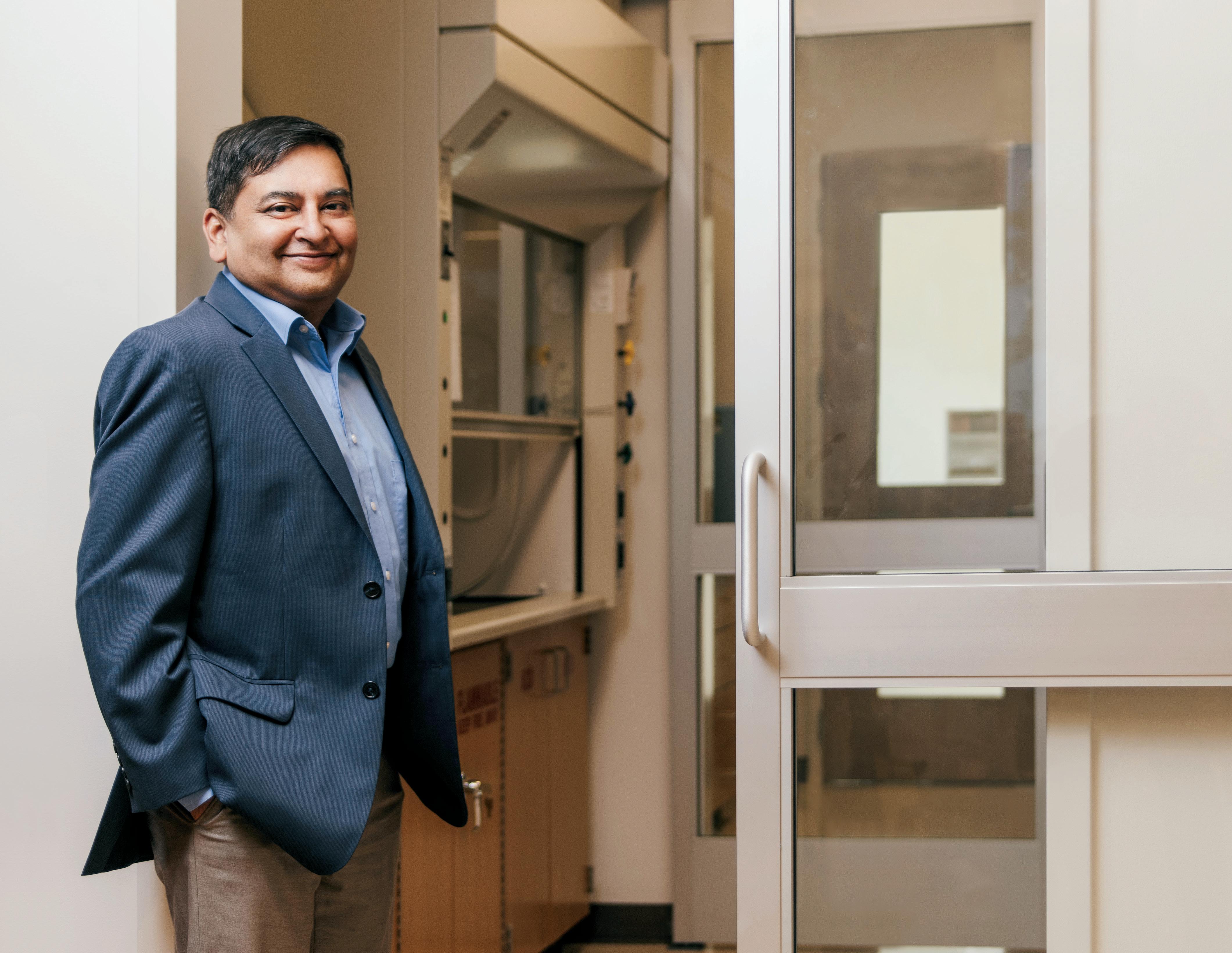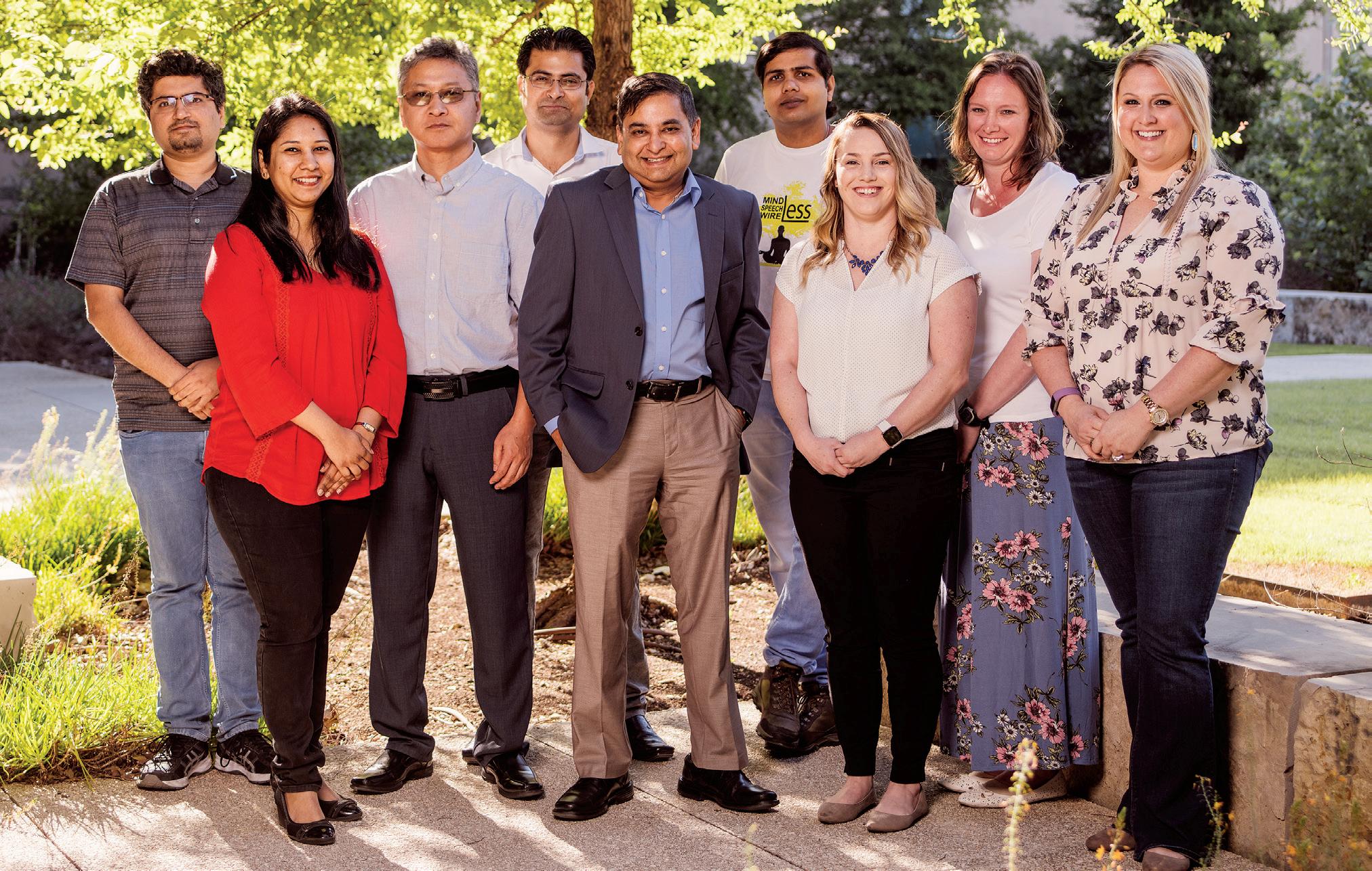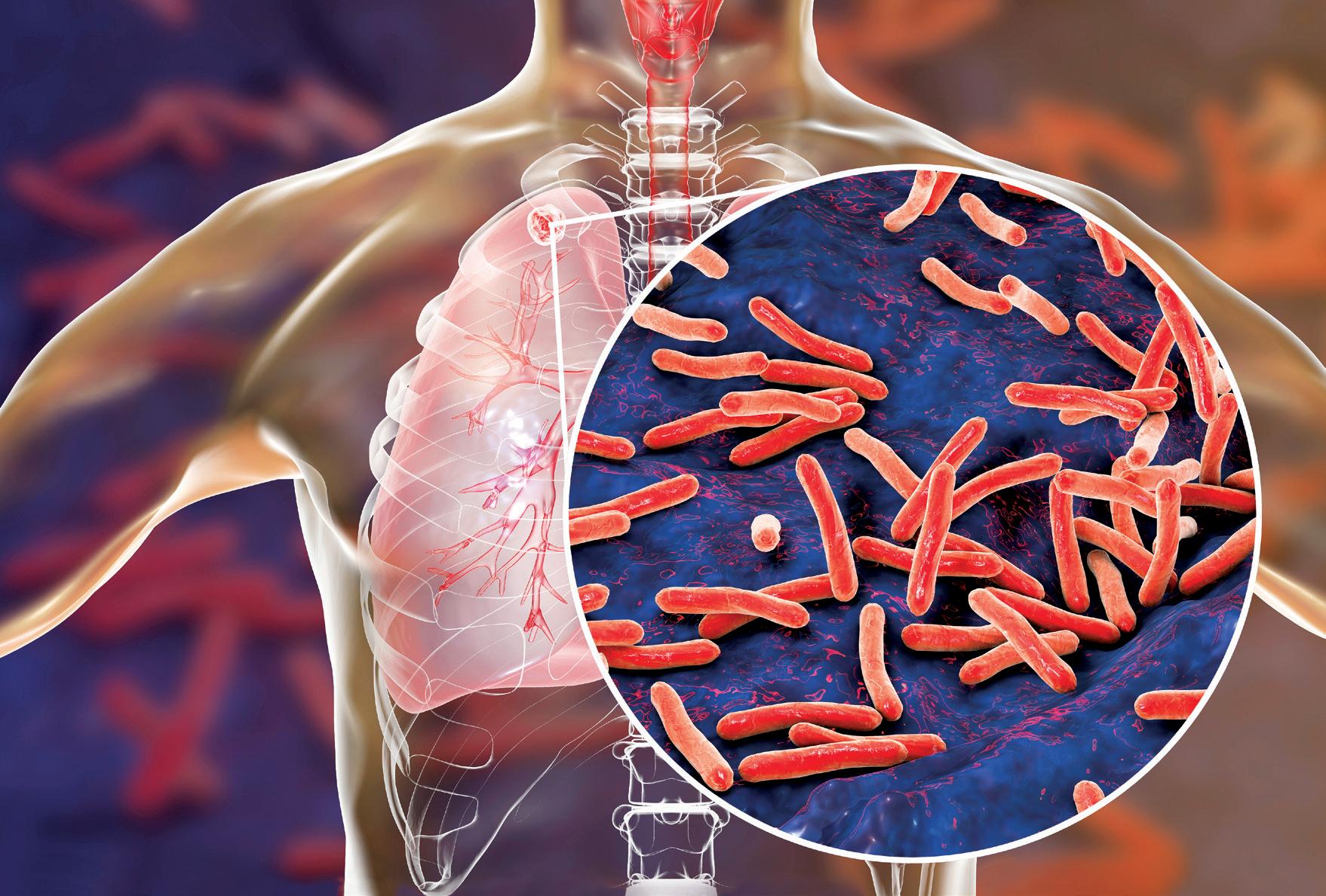
5 minute read
DEEPAK KAUSHAL, NEW DIRECTOR OF THE SNPRC
Deepak Kaushal, Ph.D. NEW DIRECTOR OF THE SNPRC
eepak Kaushal, Ph.D., is a Professor at Texas Biomedical Research Institute and the new Director of the Southwest National Primate Research Center (SNPRC). He oversees the SNPRC operations, a more D than $40 million National
Advertisement
Institutes of Health-funded national resource for primate research. Dr. Kaushal is also one of the top most-funded researchers by the NIH in the United States. His research focuses on tuberculosis (TB), a disease that claims two million lives a year.
Although Dr. Kaushal’s list of achievements and contributions to research are impressive, a career in the lab wasn’t always his dream.
In fact, Dr. Kaushal once saw himself attending medical school after earning his undergraduate degree. Instead, he decided to pursue a master’s degree in Biochemistry at the University of Delhi in India, his home country.
During his master’s program, Dr. Kaushal was introduced to a group of young, driven scientists who had just come back from their research training in the United States. He was inspired by their intellectual curiosity and dedication to research. It was this connection that inspired Dr. Kaushal to consider a future in the lab.
BECOMING A SCIENTIST
Dr. Kaushal pursued his newfound interest in research by earning his Ph.D. in Biochemistry at the University of Delhi. Upon graduating, he became a Fogarty Foundation International Post-doctoral fellow at the Johns Hopkins University School of Medicine Center for Tuberculosis Research. Dr. Kaushal chose to focus his research on TB because he enjoyed the challenge of combating the number one infectious disease killer in the world. He remains determined to find a vaccine or set of drugs to control transmission of TB.
“If you look at how many people TB has killed over the course of human history versus how many people malaria has killed, or AIDS, or syphilis and you put all of these deaths together, TB has killed a thousand-fold more people in the history of mankind,” Dr. Kaushal said.
In 2001, Dr. Kaushal took his passion for TB research to St. Jude Children’s Research Hospital Center for Bioinformatics and
Biotechnology. Then in 2006, Dr. Kaushal moved to Louisiana to accept a faculty position at the Tulane National Primate Research Center, where he advanced his research through the use of nonhuman primate models. Throughout his 13 years at Tulane University, Dr. Kaushal rose through the ranks to become the Director of the Tulane Center for TB Research and a Professor of Microbiology & Immunology.
A NEW PLACE TO CALL HOME
While Dr. Kaushal enjoyed his time in the university environment, he craved a new challenge. He wanted to provide more leadership while continuing to mentor others and advance his research. When TB researcher Larry Schlesinger, M.D., became the new President and CEO of Texas Biomed in 2017, Dr. Kaushal started to consider moving his lab to San Antonio.
With Dr. Schlesinger’s support and the construction of a new 7,500 square foot facility complete with a Biosafety Level-3 (BSL-3) lab where TB research can be safely conducted, Dr. Kaushal decided to make Texas Biomed his new home in the fall of 2018. His position as Director of the SNPRC gave him the leadership opportunity he was looking for. “I have uninterrupted energy and enthusiasm for the job,” Dr. Kaushal said. “I think the previous director Dr. Robert Lanford has done a fantastic job of leading the SNPRC, and I think I have the initiative and vision to continue this growth.”
Additionally, the SNPRC’s diverse population of nonhuman primates opened the door for new research opportunities for Dr. Kaushal. At Tulane University, Dr. Kaushal primarily worked with rhesus macaques. At the SNPRC, he has the chance to use marmosets, baboons, and other species of macaques as animal models to investigate various concepts of TB.
The research opportunities at Texas Biomed and the SNPRC was also appealing to Dr. Kaushal’s research team, including Dr. Dhiraj Kumar Singh, a postdoctoral scientist who followed Dr. Kaushal from Tulane University. However, the potential for research advancements wasn’t the only

(l to r) Shashank Ganatra, M.B.B.S., Riti Sharan, Ph.D., Tae Hyung Lee, Ph.D., Ayan Chatterjee, Ph.D., Deepak Kaushal, Ph.D., Dhiraj Singh, Ph.D., Alyssa Blakley, Danicke Willemse, Ph.D., Abigail Fish, Ph.D.
appealing aspect of continuing to work with Dr. Kaushal.
“Dr. Kaushal sees more talent in us than we see in ourselves,” Dr. Singh said. “He provides all the mentoring, support and motivation needed to push us to our peak performance, enabling us to excel in all dimensions of life, professional and personal alike. Who would not want to learn and be trained by such a wonderful mentor? Henceforth, when provided with the opportunity to follow Dr. Kaushal to Texas Biomed, I didn’t give it a second thought.”
FUTURE GOALS
With the incredible teamwork, integrity and diversity of Texas Biomed, Dr. Kaushal sees potential for growth at the Institute and the SNPRC. For example, he hopes to obtain more transformative technologies, such as the recently acquired endoscope, so researchers at Texas Biomed can continue to advance their infectious disease research without having to consult outside sources. He also sees a future with more collaborative opportunities with scientists in and outside Texas Biomed.
However, Dr. Kaushal’s ultimate goal is to be “known as the best NPRC” when it comes to cost-effectiveness, safety, animal husbandry and customer service. Dr. Schlesinger believes Dr. Kaushal is a skilled scientist who can achieve this goal.
“The primate center is a flagship enterprise here at Texas Biomed,” Dr. Schlesinger said. “I was looking for a dynamic leader with great ideas and the desire to continue to elevate the stature of the primate center both nationally and internationally. Deepak is a great fit and has hit the ground running. He is a fabulous scientist and a strong leader.”

When Dr. Kaushal isn’t in the lab or office, he is with his family. Dr. Kaushal is a proud husband and father of two children who are both in high school. He has diverse interests in culture, music and the arts and even enjoys a cricket game every once in a while.
Texas Biomed and the SNPRC are proud to be the new home of one of the most outstanding and dedicated TB researchers in the nation.
Tuberculosis infection inside the lung.










